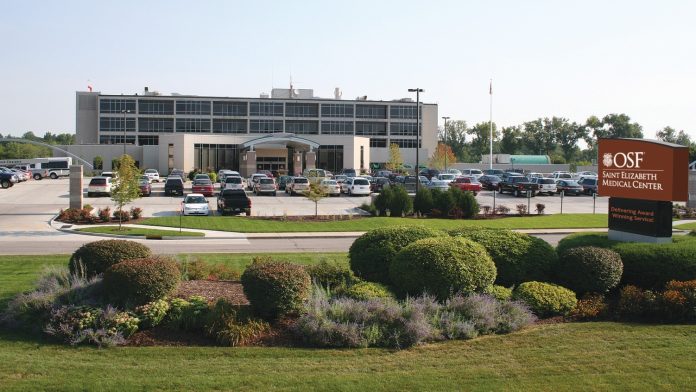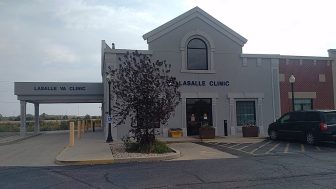OSF Saint Elizabeth Medical Center – Ottawa
1100 E Norris Dr
Ottawa, IL 61350

About OSF Saint Elizabeth Medical Center – Ottawa
OSF Saint Elizabeth Medical Center in Ottawa, Illinois is an acute care hospital located along the I-80 corridor. They offer various medical and mental health care services including treatment for drugs and alcohol.
Treatment for Mild to Severe Mental Illness
The hospital offers a broad range of treatment for people with mild to severe or chronic mental illnesses. They use trauma informed care to address the needs of adults, teens and children who need short term or long term treatment for mental and emotional health challenges.
They recognize substance abuse as a health disorder that can cause serious issues in your life. Addiction treatment is offered alongside other mental health care to address co occurring conditions that can create complex treatment challenges. These may include emotional and behavioral issues, family issues, depression, trauma or abuse.
Medication Assisted Treatment with Evidence Based Therapy
Your treatment plan may integrate medication but will also include evidence based therapies with licensed mental health professionals. They offer brief integrated therapy and traditional therapy for longer term treatment.
You can receive services in the hospital, in an outpatient setting, or online. I like that they also can also integrate FDA cleared medication when it's helpful. They work closely with your primary care provider, psychiatrists and psychiatric advanced practice nurses to diagnose and treat mental health conditions.
Addiction Treatment Programs
Individuals who are struggling with addiction to drugs or alcohol can get support at an adult program in Illinois. Designed for men and women over the age of 18, these programs offer rehabilitation treatment and recovery services.
In Illinois, cognitive behavioral therapy is an effective method for addiction treatment. It teaches effective communication skills, provides tools to help people improve mood, and empowers participants to dismiss insecurities that can lead to substance abuse.
Women who have substance use disorders are more likely than men to have co-occurring mental health disorders. Women’s rehab in Illinois often provides treatment for dual diagnosis, so women can get help for their addiction and disorders such as anxiety or depression.
Elderly rehab in Illinois encompasses a full range of treatment options. Addiction treatment for seniors includes detox programs, outpatient treatment, residential programs, medication assisted treatment, case management, and dual diagnosis.
Some of the most common services offered in a young adult program in Illinois include individual and group counseling, medication management, educational courses, and 12-step programs. These programs are tailored to address the challenges of this stage of life.
Levels of Care
Inpatient rehab in Illinois features intensive clinical supervision and a highly structured and supportive environment, meaning this level of care is especially well suited for clients just beginning their recovery journey and those at risk of relapse.
Outpatient rehab in Illinois may be brief or long-term, depending on the individual. During this time, you will maintain membership in a support group as well as attend one-on-one counseling sessions. The focus is ongoing development of life skills that will prevent relapse.
An Illinois dual diagnosis program treats both your mental health and recovery needs. Psychiatrists and addiction specialists work together to address co-occurring disorders, such as depression, anxiety, or ADHD.
Accepted Insurance

















